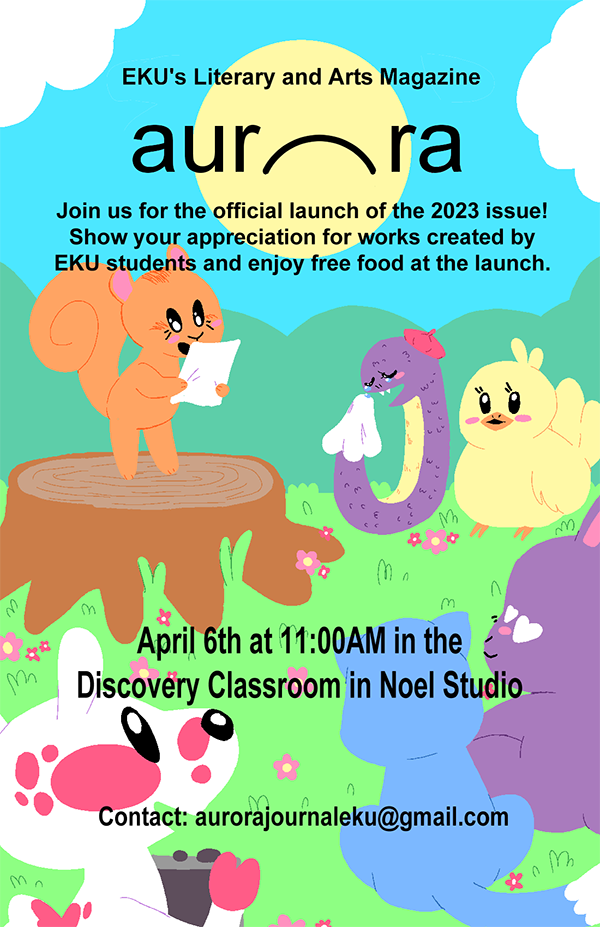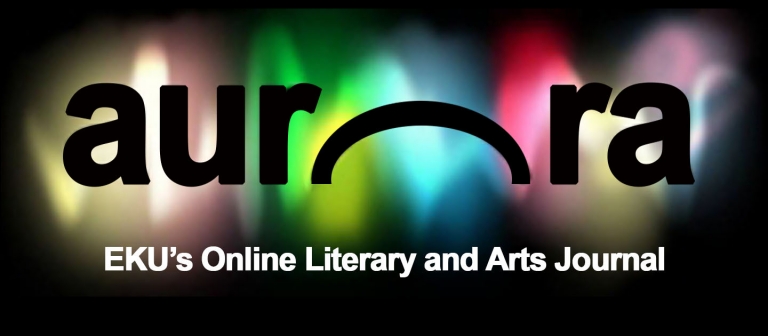Interview with Christina Lovin: Spring 2016
Interview with Christina Lovin
By Logan Jones
Logan: Why do you pursue dark themes?
Christina: I don’t pursue them, they pursue me. I have always been fascinated with death, most likely because of the number of people among my family and family friends who were killed (and did not die naturally). My brother, Merrill, is the subject of my poem, “Deep Shade.” Ten years before I was born, he was killed by a coal truck on his way home from school when he ran across U.S. 150 to get an empty pop bottle. Although I never knew him, he was always there somehow. There were others—a favorite aunt and uncle killed in a car crash when I was six or seven—who left indelible marks on me as a child, mostly due to their sudden absence from my life.
Scientists now say that DNA holds traces of traumatic experiences that is then passed down to the next generation. If so, part of that darkness comes from my parents’ lives. My father’s mother (my namesake, Christina) died a few days after he was born. He was sent to live with an uncle for twelve years. At twelve, he was forced to move to Kansas with his father, who was known to be a mean person. At fourteen, my father ran away back to Illinois, facing some horrible experiences on the way. My mother’s father died when she was nine, early in the influenza epidemic, before it was widespread (she almost died herself). Her mother had a rough life as a single, deaf woman. Perhaps their experiences have influenced my writing genetically. I should say, however, that I am not a “dark” person. It is just my writing.
Logan: What journals do you recommend for young writers to submit to?
There are several places to find calls for submission for fiction, poetry, creative nonfiction, and occasionally, plays. These calls are sometimes by theme, which is helpful if a writer has a piece that would fall under that theme (for instance, “love,” “ghosts,” “animals,” etc.)
My first suggestion is the CRWROPPS list-serve on Yahoo. It can be browsed or one can sign up for regular email notifications. I do the latter, and have created a file in my email account just for CRWROPPS emails. That way, I can go back and peruse them at my leisure without them filling up my email inbox.
Newpages.com is another good place to look for calls for submission. It is searchable, by genre and by theme, I believe. Poets & Writers has online classified ads for submission calls and contests.
There is more than one Facebook group labeled “Calls for Submissions” or something close to that. Joining such a group bring these calls directly to one’s Facebook account.
Last, but not least, there is always the Internet in all its vastness. Literary journals, as well as technical journals that are looking for creative writing pieces, have calls that may not be included in any of the above. What I do if I have a poem or story on a specific theme, is type in “Calls for submissions” “theme.” You’d be surprised how many non-literary magazines/journals want creative writing in their publication.
Logan: What got you into writing?
Christina: I’ve been writing almost my entire life, so to find the original source would be futile. I had my first public publication at around ten years old, when the anthology Young America Sings published my poem about gulls (I was very proud of using the word alee in it, I remember). I wrote poems and stories in school and just for fun. Again, around ten or eleven, I wrote a story about a Spanish leprechaun, who would say “Ole!” instead of “Erin go bragh!” I had a huge imagination. By seventh grade, I was writing Sci-Fi stories such as the one where the main character, a girl my age, was actually an alien who had infiltrated a junior high school.
I believe that I leaned more toward poetry due to two things: church hymns, which I loved, and getting my very own copies of The Best Loved Poems of the American People and a thin volume of some of Shakespeare’s sonnets. I also memorized Edgar Alan Poe’s “The Raven,” from an ancient volume that somehow ended up in the bathroom reading material rack. I was mesmerized by poetry very early on.
Logan: What do you look for when you submit a piece of your writing?
Christina: I’m not sure exactly what you mean by your question. I submit as much as possible, hopefully to a journal or anthology that will want to publish my work. There’s no real science to it. I do try to read some of the work by other writers who have been published in that specific publication, at least when it comes to journals. As I’ve mentioned before, some have a very narrow sensibility when it comes to what they publish.
Recently, I had an unusual experience with a forthcoming ekphrastic anthology. Writers were to view specific photographs, then write a poem about a few of them. I spent a couple of hours writing a short poem (yes, sometimes it takes that long and it’s still not finished), identified the photo I had used as inspiration, and sent it off electronically. Within minutes, I got this response: “Finally... a good poem. I've seen so many lousy ones.” That was a good day! That’s what I look for (although it’s very rare to get that sort of pat on the back).
Logan: How long were you writing until you were actually able to be published?
Christina: As I mentioned above, I was around ten when my first poem was published. It was many years before I began submitting in earnest. I had a few dozen not-very-good poems published years ago and was paid for all of them. I doubt any of those can be found online (thankfully!).
I continued writing, and upon moving to Maine, began meeting more serious poets and writers. I realized my poetry was “not-very-good” and wanted to improve it. Reading more contemporary poets (Kenneth Patchen is a favorite) exposed me to a different way of thinking of poetry. In the summer of 2000 (and again in 2001), I attended Harvard University’s summer writing program. My poetry professor in 2000, Bruce Smith, was that year a Pulitzer and National Book Award finalist. He encouraged me a great deal. The next summer, my Creative Nonfiction professor, Jody Lisberger, did the same. They told me I should go for an MFA in Creative Writing, which I did. From 2004, when I graduated with an MFA, I’ve published well over two hundred individual pieces, three chapbooks, and two full-length poetry books. I guess you could say I am somewhat of a late bloomer, although I was always growing toward greater publication.
Logan: How do you find time to write with your teaching schedule and other commitments?
Logan: Where do you read your poetry, besides at Open Mic?
Logan: How do you feel about reading personal material aloud?
Logan: Did you go to school to teach creative writing?
It was not until I completed my MFA in Creative Writing that I realized I had the degree and experience to teach writing. I taught composition for several years, but always incorporated creative writing exercises for my students.
Logan: Do you remember writing your first poem, and what was it about?
Logan: Do you have a favorite poem of your own?
Christina: “This Day in Particular” is probably my favorite (although there are others that are close—“Settlement” or “Unmarked Crossing” or “Little Fires”). It was written on the first anniversary of the 9/11 terrorist attacks. I was talking to a friend that morning (9/11/2002) about what we each would be doing that day. I was living in Chapel Hill, North Carolina, and would be attending a well-organized ecumenical memorial service. He said he had mown hay the day before, and because it was a drought in Kentucky, he would be baling hay. My first thought was that what a wonderful thing to do on such a day—be close to the earth out in the sunshine. The next words out of his mouth were, “I didn’t cut the feet from off one rabbit.” Of course, I was startled, and asked if that sort of thing happened a lot. He then went on to tell me the story that unfolds in “This Day in Particular.” It is graphic and hard to imagine, but so was 9/11. It became a sort of benediction for me, a catharsis to help rid myself of the horror of that day:
….And in that cold
the fragrance of September’s grass
will rise like prayer and you will not remember
Logan: Do you think submitting to a college literary journal is a good start for a writer?
There are many ways to support oneself with a creative writing degree. Of course, teaching probably tops the list. I had not really considered a teaching career until after I’d finished my MFA. I studied creative writing simply to improve my own writing. I’m very glad I was able to use that degree to teach, however.
Any career that uses writing as its central activity could be open to a creative writing major. Businesses use writing in advertising, of course, as well as direct marketing (mailings to individuals—letters, flyers, etc.). I was in retail for many years (my ex-husband and I owned a small chain of retail stores) and then real estate for around ten years. I didn’t have a creative writing degree at that time, but definitely used my writing skills to promote our businesses, and later, myself.
Of course, the idea of a creative writing degree is to write something that will make money. That’s possible with fiction and maybe creative nonfiction. It’s doubtful with poetry, unless one wins the Pulitzer or National Book Award. However, a poet friend (Rose Gay) just won $100,000 poetry prize.
I remember asking my poetry professor during my first summer at Harvard (Bruce Smith), what job a writer should have. His response was, “Anything that pays the bills so that you can have time to write.”


